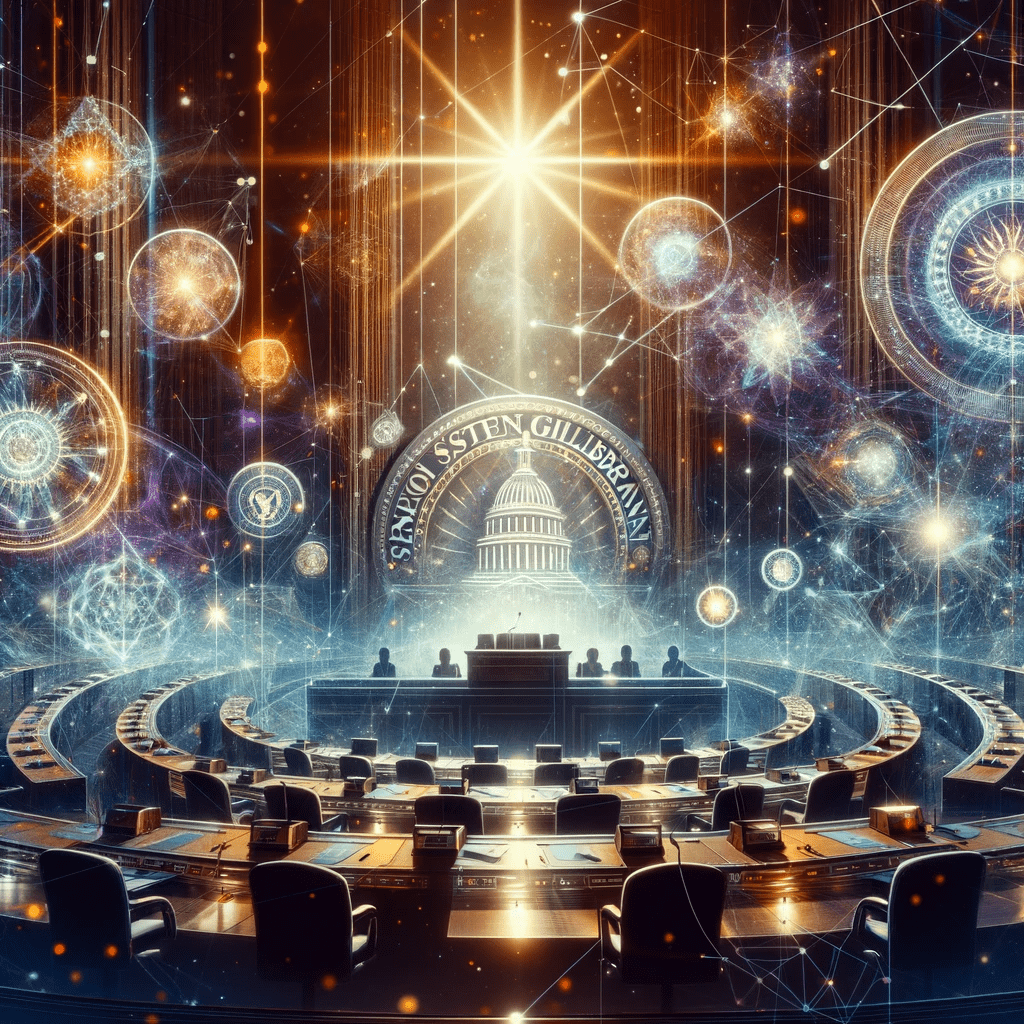Senator Kirsten Gillibrand

Senator Kirsten Gillibrand, born on December 9, 1966, is a Democratic politician from New York who has been serving as the junior U.S. Senator since 2009. Before her Senate tenure, she was a member of the U.S. House of Representatives, representing New York’s 20th congressional district from 2007 to 2009. Gillibrand has a reputation for her work on various issues, including women’s rights, military sexual assault prevention, and environmental protection. One of the lesser-known areas of her focus has been her advocacy for transparency and government accountability in the study of Unidentified Aerial Phenomena (UAPs), commonly known as UFOs.
In recent years, there has been an increased interest in UAPs due to various sightings reported by military personnel, pilots, and civilians. These sightings have raised questions about the potential risks they may pose to national security and aviation safety. Senator Gillibrand’s efforts in this area aim to address these concerns and ensure that the U.S. government takes a comprehensive approach to understanding and investigating UAPs.
In 2021, Senator Gillibrand introduced an amendment to the National Defense Authorization Act (NDAA) for Fiscal Year 2022. The amendment proposed the establishment of an office within the Department of Defense (DoD) dedicated to investigating and analyzing UAP reports. The office would be responsible for coordinating with other relevant agencies to share information on UAPs, ensuring a unified approach to understanding these phenomena. The goal of this initiative is to provide a more systematic approach to collecting, analyzing, and sharing information about UAPs, enhancing the U.S. government’s understanding of these occurrences, addressing national security concerns related to UAPs, and reducing the stigma around reporting UAP sightings by military personnel and civilians.
In April 2020, the U.S. Department of Defense released three declassified videos of UAP encounters captured by U.S. Navy pilots, sparking renewed interest in the subject. The videos had been circulating among defense and intelligence officials for years before their public release (Bender, 2020).
In August 2020, the Pentagon officially established the Unidentified Aerial Phenomena Task Force (UAPTF) to study and gain insight into the nature and origins of UAPs. The UAPTF was created to improve the understanding of and gather information on UAPs that could pose a threat to U.S. national security (U.S. Department of Defense, 2020).
In June 2021, the Office of the Director of National Intelligence (ODNI) released a preliminary report on UAPs, stating that out of 144 incidents reviewed, only one could be definitively explained. The report emphasized the need for further study and data collection to better understand the nature of UAPs (Lamothe and Witte, 2021).
Books on the topic, such as “The Phenomenon: Forty Years of Flying Saucers” by John A. Keel, discuss historical accounts of UFO sightings and encounters, often emphasizing the need for objective study of these phenomena. These books highlight the potential scientific and technological advancements that could result from understanding the true nature of UAPs, as well as the implications they may have for our understanding of the universe and our place in it.
The New York Times published a groundbreaking article in December 2017, revealing the existence of a previously undisclosed Pentagon program called the Advanced Aerospace Threat Identification Program (AATIP), which was dedicated to studying UAPs (Blumenthal, Kean, and Cooper, 2017). This revelation, along with subsequent reporting on UAP sightings and official responses, has contributed to an ongoing public discourse on the need for transparency, government accountability, and scientific investigation of these phenomena.
Senator Kirsten Gillibrand’s efforts to promote transparency and government accountability in the study of UAPs reflect a growing awareness of the potential implications these phenomena might have for national security, aviation safety, and scientific understanding. By introducing legislation to establish an office within the Department of Defense dedicated to investigating and analyzing UAP reports, she aims to ensure that the U.S. government takes a comprehensive and coordinated approach to this issue.


